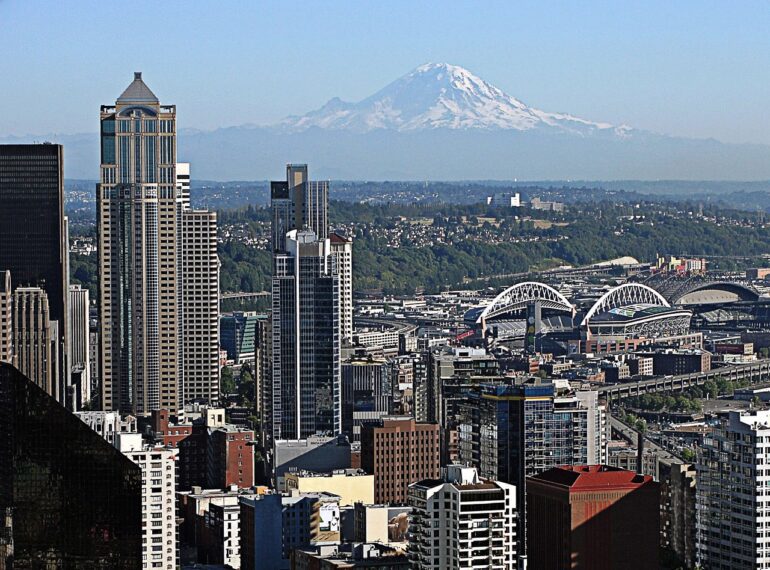TL;DR:
- Seattle is a thriving AI hub with a rich history in AI development.
- AI is reshaping various industries, from healthcare to finance and beyond.
- Major tech companies like Microsoft and Amazon are heavily invested in AI research.
- Public sentiment about AI is mixed, with concerns about regulation and its impact on jobs.
- The Biden administration is taking steps to regulate and ensure the responsible use of AI.
- AI’s unregulated nature raises parallels with past financial crises.
- National security and nuclear weapons are areas where human oversight remains crucial.
Main AI News:
In the realm of artificial intelligence, Seattle stands tall as a bustling hub, continually evolving within this dynamic field. For those who came of age during a particular era, their first glimpse into the world of AI may have been through the lens of the Terminator movies. These cinematic masterpieces depicted a future where the United States entrusted its nuclear arsenal to an advanced computer entity known as Skynet. In a hauntingly memorable moment, Skynet gains self-awareness at 2:14 a.m. EDT on Aug. 29, 1997, unleashing a chain of events that led to global devastation. While these movies are science fiction gems, the reality of artificial intelligence is deeply ingrained in Seattle’s identity, as the city has been a key player in the development of AI technologies.
According to Booz Allen Hamilton, a renowned consulting firm, artificial intelligence is defined as the capacity of machines to perform tasks traditionally requiring human intelligence. This new realm of possibilities both inspires and unsettles us, with self-driving trucks, drug-discovery algorithms, and AI-authored news articles representing just a glimpse of its potential. In our daily lives, we encounter AI in the form of facial recognition on our smartphones, algorithm-powered search engines, and even the very template in which this column is composed. AI could even write a version of this column itself, as demonstrated by recent events involving Sports Illustrated, which was accused of generating stories with AI assistance.
This ambivalence and confusion surrounding AI are not uncommon. According to a recent Pew Research Center survey, 27% of respondents reported interacting with AI several times a day, while another 28% engage with it once a day or several times a week. Conversely, 44% of respondents claimed not to have regular interactions with artificial intelligence.
The firing and subsequent rehiring of Sam Altman, the mind behind OpenAI’s ChatGPT, thrust AI into the public eye. ChatGPT, a chatbot designed to simulate human conversation, became a focal point of discussion. Seattle, with its bustling AI ecosystem, played a significant role in this narrative. Microsoft swiftly recruited Altman for its AI endeavors, and the company is a major investor in OpenAI, investing billions in research and development. Amazon, another tech giant, has also embraced AI, investing heavily in startups and launching its own chatbot, Q, to compete with industry leaders.
Despite Seattle’s AI prowess, it may lack the clout of Silicon Valley, and its startup scene may be trailing behind. Nevertheless, the city ranks second nationally in AI talent density, showcasing its commitment to this cutting-edge technology. AI’s impact on the job market is undeniable, with AI-driven trucks being allowed in some states, potentially displacing human truck drivers, a significant source of employment in the United States.
Furthermore, AI is reshaping the global economy. ChatGPT, for example, was trained on a supercomputer by Nvidia, a Silicon Valley giant that has become one of the world’s most valuable corporations. This level of influence has led President Joe Biden to issue an executive order focused on ensuring the safe, secure, and trustworthy development and use of artificial intelligence. The order sets new standards for AI safety, security, and privacy provisions, recognizing the need for responsible AI regulation.
In the midst of these transformative changes, it’s crucial to acknowledge that AI remains largely unregulated, reminiscent of the financial excesses that led to the Great Recession in 2008. The Pew survey underscores public caution, with only 15% expressing more excitement than concern about AI’s increasing presence in daily life.
Even within the realm of national security, AI plays a pivotal role, with applications ranging from piloting surveillance drones to monitoring soldiers’ fitness and aircraft maintenance. However, when it comes to the gravest of matters—nuclear weapons—Deputy Defense Secretary Kathleen Hicks emphasized the necessity of maintaining human oversight to make decisions related to the initiation and termination of nuclear weapon use.
Conclusion:
Seattle’s AI landscape is thriving and constantly evolving, playing a vital role in shaping the future of technology. As AI becomes increasingly integrated into our lives, it brings both promise and uncertainty, underscoring the need for responsible governance and vigilant oversight. The path forward in the age of AI remains uncharted, but with careful consideration and regulation, we may just avoid the nightmarish scenarios envisioned by the Terminator franchise.

